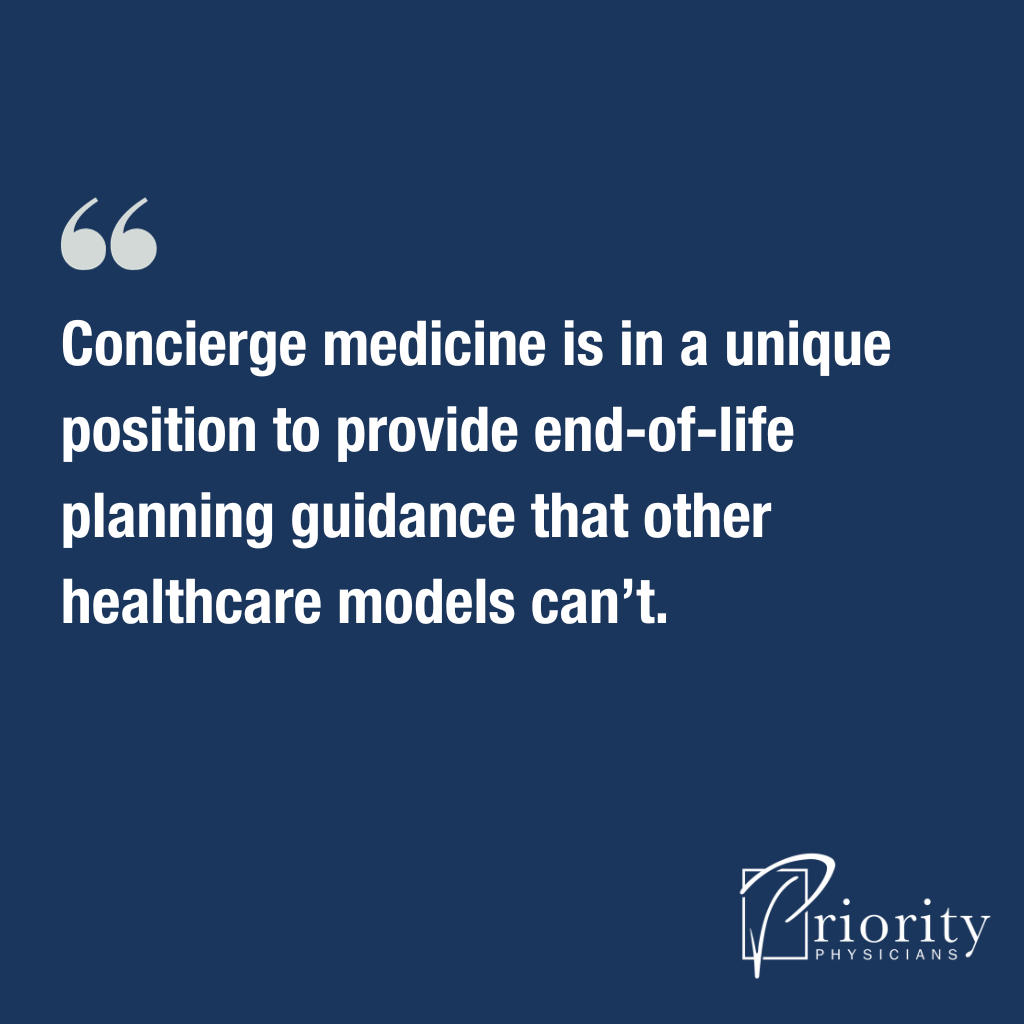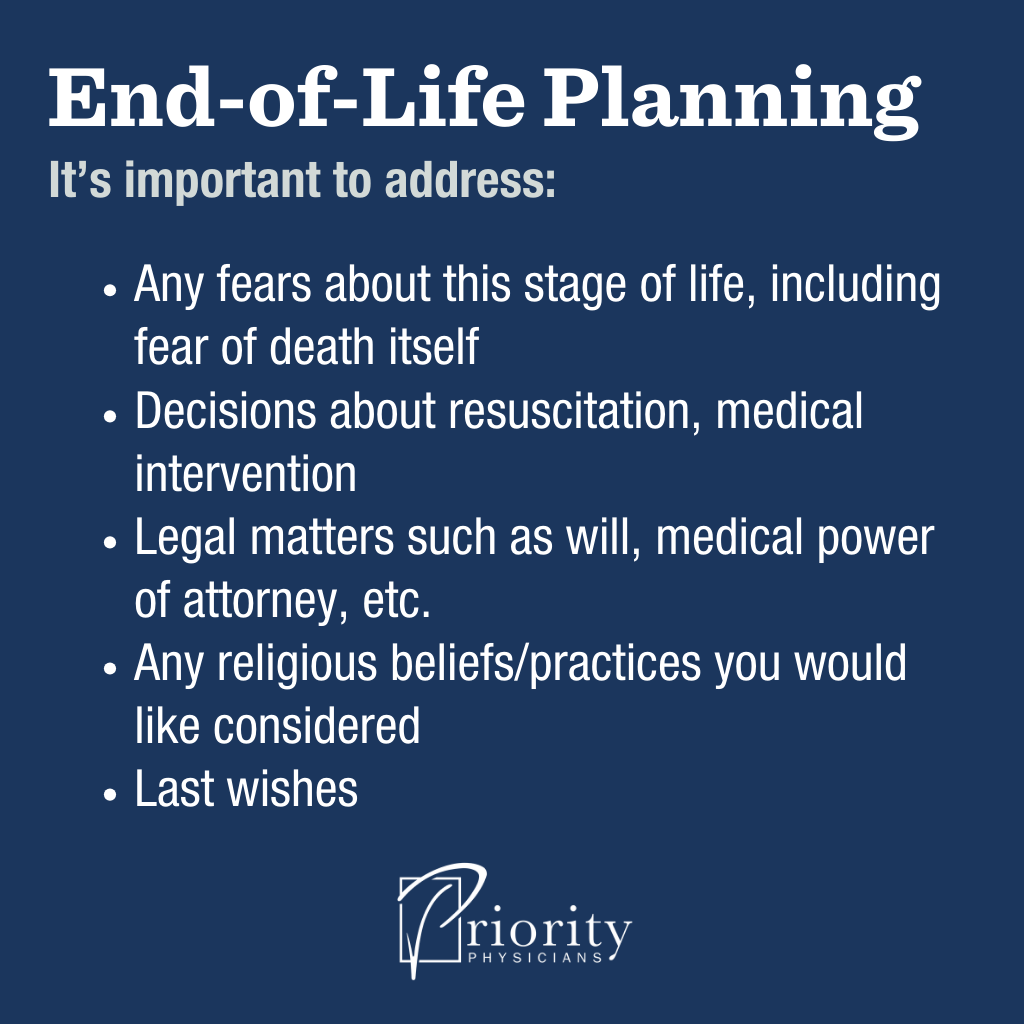My patients spend a lot of time talking to me about managing and improving their current health, how active they hope to be in retirement, and even how they’d like their lives to look in their 80s and 90s.
The subject of death is different. Few people like to envision — let alone plan for — a time when they, their parents, or another family member will pass away.
Conversations with your concierge physician can guide you and your family through these delicate decisions and critical plans — and ensure that a person’s wishes are honored during that final phase of life.
Early Conversation Is Essential
Let’s consider a patient in their 80s or 90s who’s living a vital, active lifestyle. Maybe that patient is even going to work every day.
Because that stage of life is so fragile, the elderly patient’s health could abruptly take a turn for the worse. There may be a sudden cascade of medical issues, giving the patient little time to contemplate what they’d like their final stage of life to look like.
I’ve seen my patients go from living independently to suddenly being hospitalized to moving to intensive care to passing away quickly, forcing their families to make spontaneous decisions.
In cases where I’ve had conversations with the patient about their end-of-life wishes ahead of time, these end-stage decisions were easier for their family members. The knowledge that they adhered to the patient’s wishes gave the family comfort as they grieved.

The Concierge Physician’s Unique Role
Concierge medicine is in a unique position to provide end-of-life planning guidance that other healthcare models can’t.
Few patients proactively bring up end-of-life planning. However, as a concierge physician, I have the time to build a close and trusting relationship with patients and their families and to initiate end-of-life planning.
No one can predict when end-of-life decisions might be called for (for any family member, not just the elderly). But I can broach the sensitive questions that help put the necessary measures in place. These discussions shouldn’t happen in a rushed environment. I enable my patients to open up and have those conversations over time.
Also, as a concierge physician, I’m able to visit end-stage patients in a hospital or nursing home. Many patients wish to spend their last moments at home, so I do home visits as well. Concierge practice enables me to be more hands-on, compassionate, and caring than traditional, insurance-based primary care physicians can, since they’re only able to see patients in a doctor’s office.

Let’s Talk During Your Annual Physical
Discussing end-of-life plans with your concierge doctor prepares your family for any scenario. It’s a discussion I like to have during each annual physical exam — even with the 50-year-old patient who doesn’t think it’s time to address such things yet.
It’s important that we review your family’s preferences on a regular basis to get you thinking about what you want in your final stages of life. We get to the root of any fears you have about this final stage — perhaps the fear of death itself — and how to manage them. Our conversations cover not just healthcare decisions but also related legal matters such as your will, medical power of attorney, and so on.
Handled sensitively, end-of-life planning ensures a patient’s wishes are honored in their final moments. This experience can be profoundly gratifying for patients and their families, allowing end-stage patients to pass away with peace and dignity the way they choose.
Your Priority Physicians look forward to having these early discussions to help guide you and your loved ones through these important end-of-life decisions.
Please reach out at any time.

